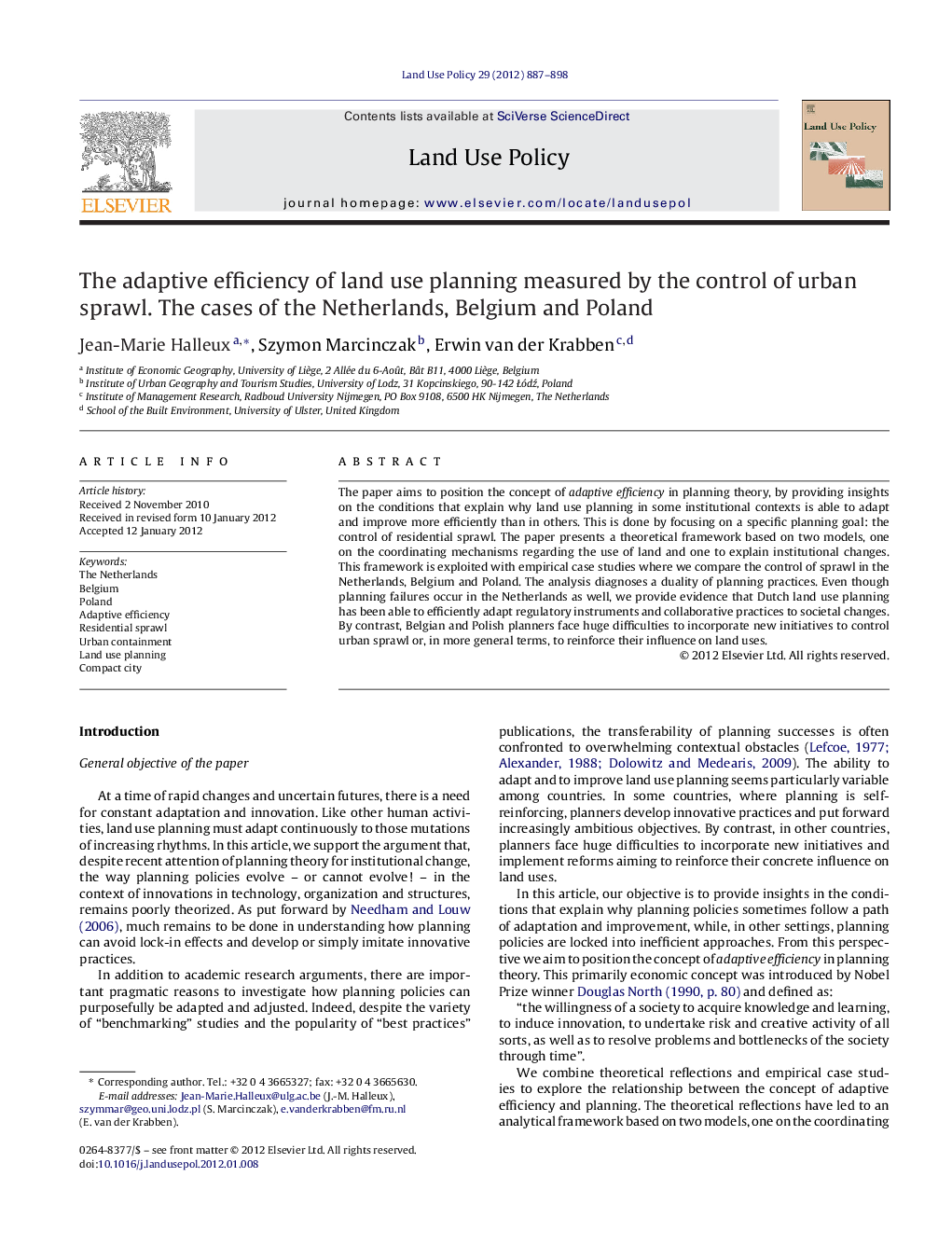| Article ID | Journal | Published Year | Pages | File Type |
|---|---|---|---|---|
| 93341 | Land Use Policy | 2012 | 12 Pages |
The paper aims to position the concept of adaptive efficiency in planning theory, by providing insights on the conditions that explain why land use planning in some institutional contexts is able to adapt and improve more efficiently than in others. This is done by focusing on a specific planning goal: the control of residential sprawl. The paper presents a theoretical framework based on two models, one on the coordinating mechanisms regarding the use of land and one to explain institutional changes. This framework is exploited with empirical case studies where we compare the control of sprawl in the Netherlands, Belgium and Poland. The analysis diagnoses a duality of planning practices. Even though planning failures occur in the Netherlands as well, we provide evidence that Dutch land use planning has been able to efficiently adapt regulatory instruments and collaborative practices to societal changes. By contrast, Belgian and Polish planners face huge difficulties to incorporate new initiatives to control urban sprawl or, in more general terms, to reinforce their influence on land uses.
► Much remains to be done in understanding how land use planning can avoid lock-in effects. ► The paper aims to position the concept of adaptive efficiency in planning theory. ► We examine the sprawl issue in three contrasting country cases: the Netherlands, Belgium and Poland. ► The paper discusses a number of conditions that explain why planning in some institutional contexts is able to adapt and improve more efficiently than in others. ► Adaptively efficient planning policies are policies that are able to activate the right coordination mechanism (price, authority or cooperation) at the right moment.
